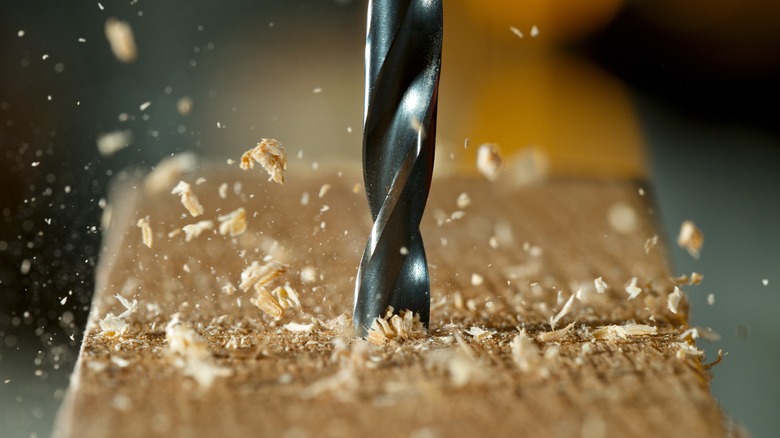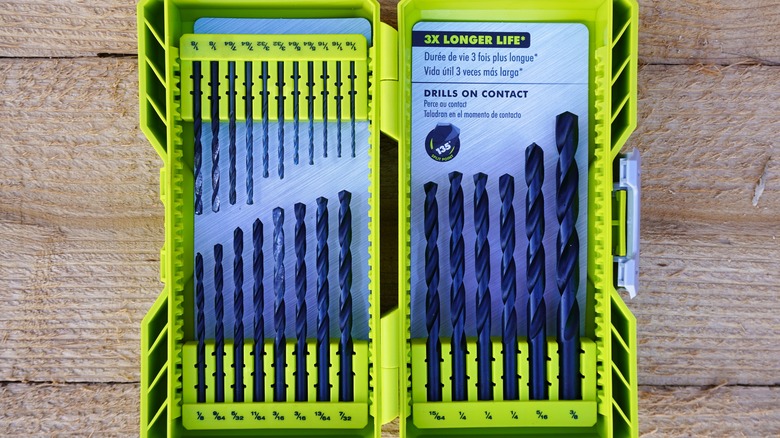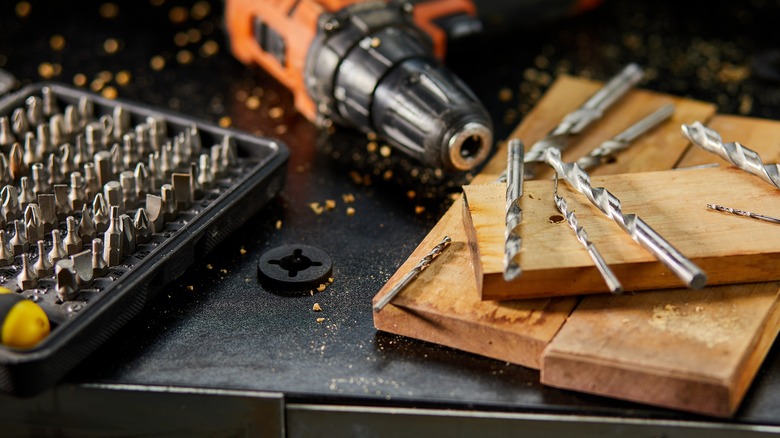How To Choose The Right Drill Bits For Your Ryobi Drill
Any of us who have used a power drill in the past has come face to face with the process of choosing the right drill bit for our project. Whether you are working with a piece of wood to build a table or you are just hanging a mount for your television in your living room, picking out the right-sized drill bit for your drill can be tricky.
If you use one that's too small, you run the risk of not being able to fit the screw you are going to use through it, and if you use one too large, you have to go find yourself larger screws and possibly even rethink how you will be working on this project for the rest of the time.
So, the next time you get out your Ryobi drill for some work, how can you be sure the bit you are putting at the tip of your drill will be the right one? For those who just purchased a drill for the first time, you might even be more in the dark and aren't even sure which drill bits to have in your stable to use. This brief guide will hopefully clear up any confusion as to what to do.
How to choose what drill bits to purchase
If you are new to drilling, you may be completely unsure of which drill bits to even have. You walk into a hardware store and see an aisle filled with them, but you don't know where to start. There are two main things you need to keep in mind when choosing which drill bits to purchase: optionality and material.
Let's start with that first topic. Rarely, if ever, is someone going to buy one singular drill bit. They come in a variety of packs of different sizes. If you want to stay in the Ryobi line to match your new Ryobi drill, the company offers many different packs of drills, ranging from three-piece sets to 300. If you're looking at sets with under 10 drill bits, these tend to be for more specialty purposes, like wood spades. Something like a 25-piece set is a decent starting point that gives you quite a bit of versatility with fairly common measurements to not overwhelm you.
Then there's material. Drill bits are generally made from steel, but there are a variety of coatings that the bits can come in that affect durability and strength. For your average drilling, the common black oxide coating bits are perfectly fine, but if you are drilling through a lot of wood or even metal, opting for a titanium-coated drill bit may be of interest to you. There are also diamond-coated and carbide-tipped bits, but once you're at that point, you need to be pretty experienced with a drill.
How to choose what drill bit to use
Now that you have your drill bits, it is time to use them, but you have so many to choose from. Which do you select? Well, the size of the drill bit you use is entirely dependent on the screw that is going to fill the hole that you make with the drill. Before selecting what drill bit is going into your drill, you need to know the size of the screw. So, let's say you are using a #10 screw, which is about 3/16 inch. You may think that means you should grab the 3/16-inch drill bit, right? Not exactly.
The general rule of thumb when selecting a drill bit size is to choose one smaller than your screw size because you want it to match the diameter of the core of the screw and not the grooves. So, instead, you would want to go with a 1/8 inch screw or, even better, a 7/64 inch screw. The reason that would be better is that it is always a good idea to start with a smaller hole when you drill.
If it is too small, you can just go one size up and make it a little bigger. If your initial hole is too big, there's no great way to make it smaller, and you are stuck either having to drill another hole somewhere else or using a spackle to try and make it smaller again. If you go by that rule of thumb, you should get the handle of which drill bit you should use in no time.


